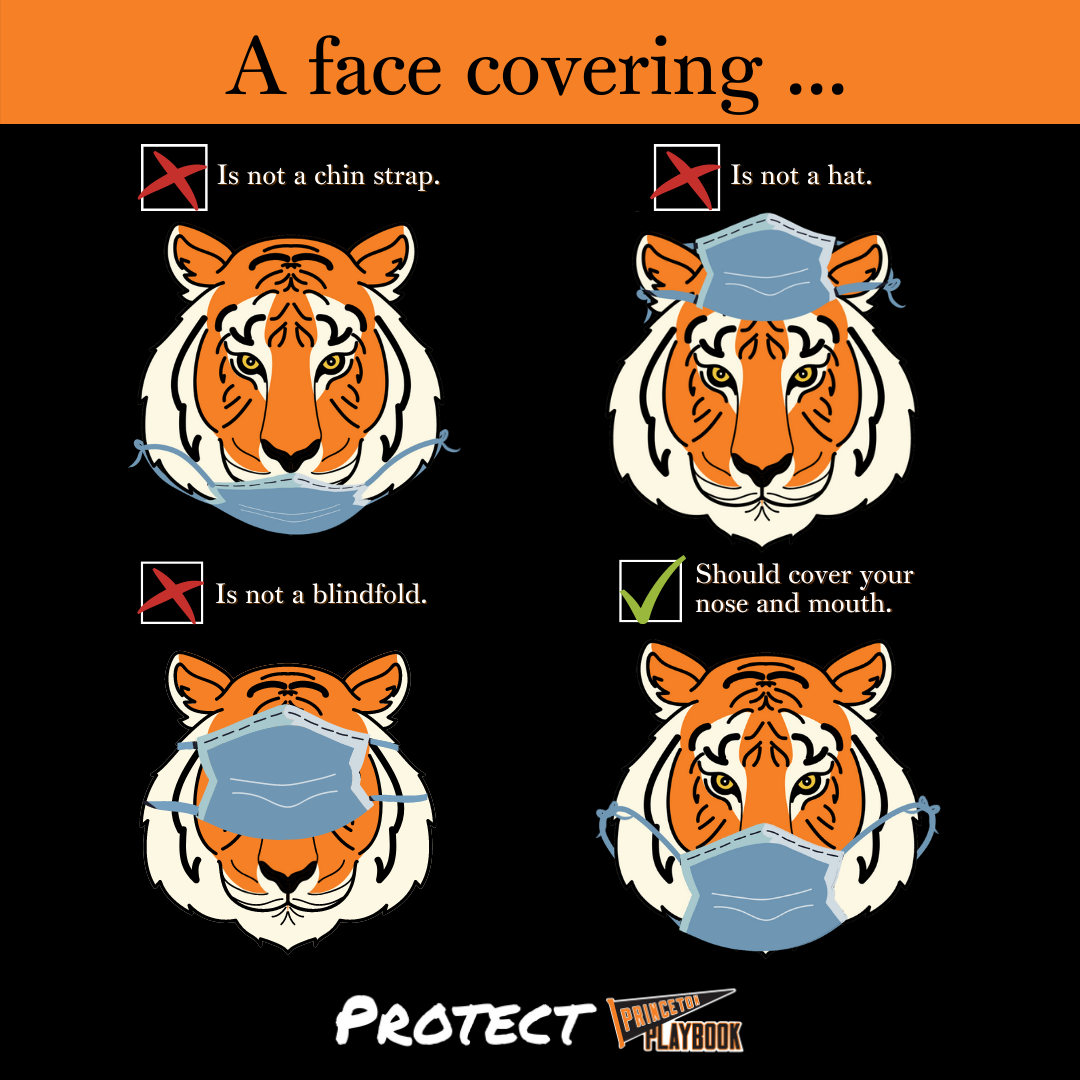The University has launched the Princeton Playbook public health campaign as many undergraduates begin returning to campus for the spring semester. The Princeton Playbook focuses on four principles or “plays”— Prepare, Protect, Participate and Persist — to help limit the spread of COVID-19 on campus and in the community.

Through the Princeton Playbook online toolkit, students, faculty and staff can download graphics reminding Princetonians about the ways to stay safe on campus this spring.
The multifaceted campaign educates students, faculty and staff through social media, email, videos and campus signage, and encourages Princetonians to “come together as tigers, one stripe apart.” Members of the University community are encouraged to download Princeton Playbook infographics, posters, Zoom backgrounds and other assets through an online toolkit, as well as share health and safety messages on social media using #PrincetonPlaybook.
“The Princeton Playbook is our effort to use health behavioral and communications sciences to create welcoming and motivational messages and to clarify protocols and practices for being on-campus together,” said Sonya Satinsky, director of Health Promotion and Prevention Services. “The Playbook helps students understand both the University’s role and students’ individual responsibilities to reduce or prevent the spread of COVID-19 on our campus.”
University Health Services and the Office of Communications developed the Princeton Playbook, with input from undergraduate students. The public health campaign is based on guidance from the Centers for Disease Control and Prevention, the New Jersey Department of Health and University Health Services.
The Princeton Playbook shares a range of information about how to safely live, work and study on campus, such as arrival quarantine protocols; COVID-19 testing and contact tracing; and guidelines for dining on campus. The campaign is based on the following four actions.

The University's new public health campaign educates students, faculty and staff through social media, emails, posters, campus signage and more. Here, the Princeton Tiger reminds you to wear a face covering to limit the spread of COVID-19.
- Prepare: How both the University and students can ready the campus for a safe environment, such as the arrival quarantine period for undergraduates moving back to campus this month.
- Protect: Individual actions that Princetonians must continually and collectively practice, such as wearing face coverings and staying physically distant (at least 6 feet or 2 meters apart).
- Participate: Activities that help track the virus and reduce its spread, such as participating in the University’s asymptomatic testing program.
- Persist: Reminders to stay vigilant during the ongoing pandemic, including mental health resources through University Health Services for students and through Human Resources for employees.
The University will begin welcoming many undergraduates back to campus starting this weekend, with a phased move-in from Jan. 16-Jan. 24. This will allow undergraduates living on campus to participate in the arrival quarantine protocol before spring semester classes begin on Feb. 1.
As announced last fall, Princeton undergraduates were invited, but not required, to live on campus for the spring semester. About 2,900 undergraduates are expected to live in campus housing this spring.
All undergraduates living on campus, as well as those living in Mercer County and Plainsboro, New Jersey who wish to access campus, must participate in the University’s asymptomatic testing protocol, sign the University’s Social Contract, and commit to other safety guidelines and rules.
More information about the spring semester is available on spring2021.princeton.edu, while public health information for the campus community is available on covid.princeton.edu.






















